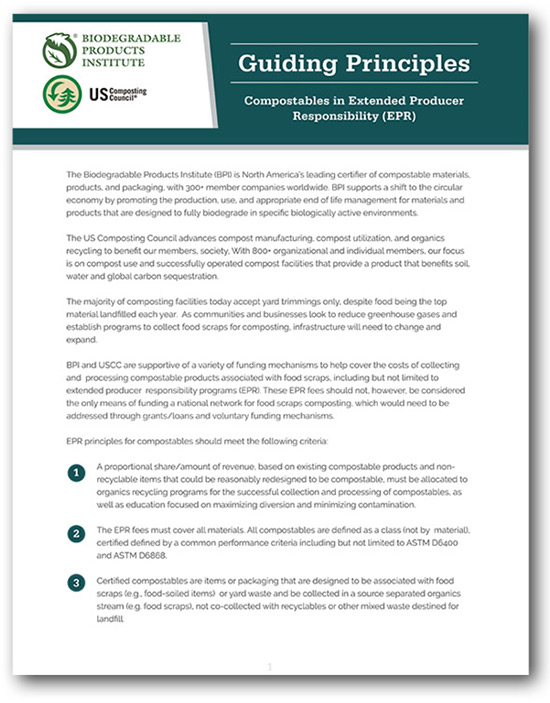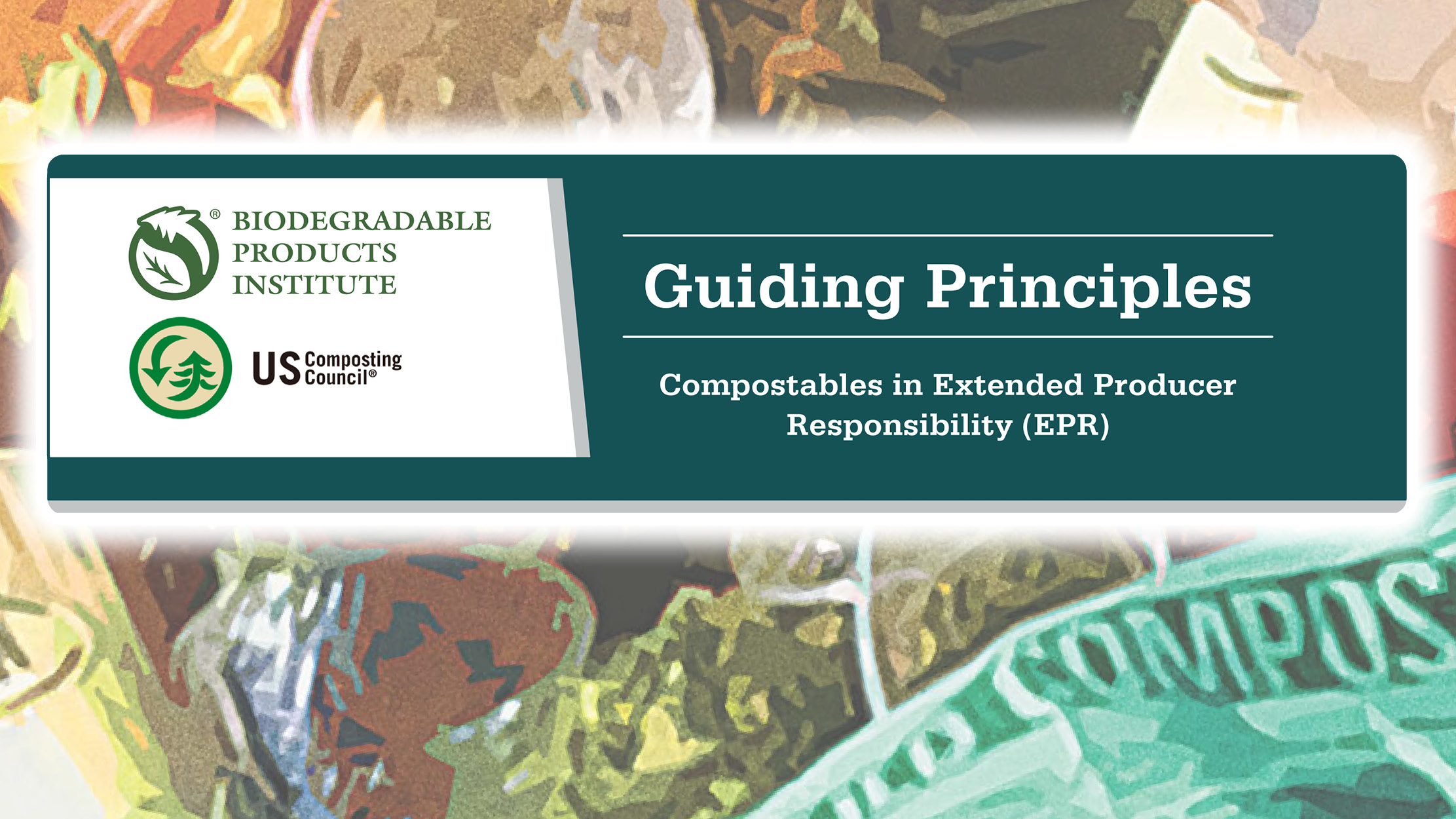The US Composting Council (USCC) and the Biodegradable Products Institute (BPI) released joint guidance on June 14 on how best to address compostable products in Extended Producer Responsibility (EPR) programs for packaging. More communities and businesses are establishing programs to collect food scraps for composting, requiring existing composting infrastructure to change and expand. USCC and BPI support a variety of funding mechanisms to help cover the costs of collecting and processing compostable products associated with food scraps, including EPR programs that collect fees from the sales of compostable products. Collaboration on principles for EPR and the work of a joint task force have already contributed to the passing of a first of its kind EPR bill in Colorado — signed into law in early June by the governor — that contains provisions specific to composting.
“We need solutions that reward participation and incentivize investment,” notes Rhodes Yepsen, Executive Director of BPI. “Designed well, EPR programs provide a unique opportunity for certified compostable product manufacturers to support the cost of processing their products in food scraps programs. While EPR is not a silver bullet, we’re excited by the potential for these programs to bring together stakeholders and initiate solutions we’ve long needed.”
 In their joint guidance document, USCC and BPI lay out specific recommendations for EPR programs that include: specifying how fees should be allocated; defining what products and materials should be included; ensuring representation in Producer Responsibility Organizations (PROs) and advisory councils; exempting compostables from PCR requirements; establishing compatibility with existing food scraps collection goals; and specific eco-modulation guidance. (Eco-modulation is a varied fee based on the ease/likelihood of recyclability/compostability). EPR fees should not, however, be considered the only means of funding a national network for food scraps composting, which would need to be addressed through grants/loans and voluntary funding mechanisms, state the organizations.
In their joint guidance document, USCC and BPI lay out specific recommendations for EPR programs that include: specifying how fees should be allocated; defining what products and materials should be included; ensuring representation in Producer Responsibility Organizations (PROs) and advisory councils; exempting compostables from PCR requirements; establishing compatibility with existing food scraps collection goals; and specific eco-modulation guidance. (Eco-modulation is a varied fee based on the ease/likelihood of recyclability/compostability). EPR fees should not, however, be considered the only means of funding a national network for food scraps composting, which would need to be addressed through grants/loans and voluntary funding mechanisms, state the organizations.
USCC and BPI also announced that their respective Boards have approved parameters for a formal strategic partnership to build on the considerable collaboration that already exists between the two groups. One of the items specifically called out in the agreement is a joint committee to develop a model bill for the labeling and identification of compostable products and packaging. “USCC and BPI have a long history of working closely together,” says Frank Franciosi, Executive Director of USCC. “Our joint efforts as part of the US Composting Infrastructure Council (USCIC) helped build support for the COMPOST Act and the Recycling and Composting Accountability Act, the first pieces of federal legislation to specifically address composting infrastructure. Having a more formal framework for collaboration gives us the structure we need to increase the effectiveness of the work we do together.”













